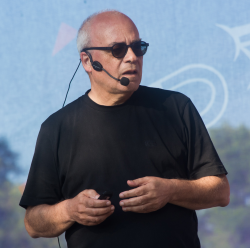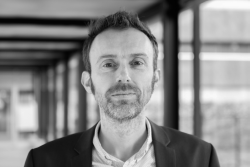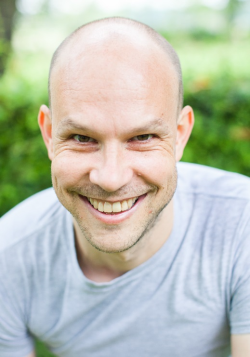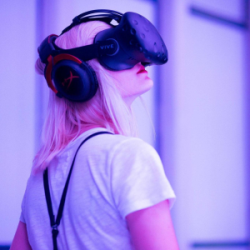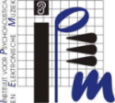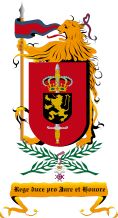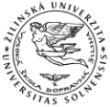COVID-19 notice for SCIFI-IT'2020 - Conference postponed to September 7-9, 2020 - NEW LOCATION University of Leuven/Campus Ghent, Ghent, Belgium
Keynotes
The Rise of the Nonhuman
Abstract
Smart machines and advanced robots are not gadgets. They are a new intelligent species on Earth. For the moment being created and evolving based on symbiotic processes with humans. One day they will be free to make their own choices of evolution and purpose.
This vision may be dismissed by sceptics on robot performance or terrify others. But the rise of the nonhuman is inevitable. For necessity and drive machines and robots will tend to be increasingly autonomous to the point of self-determination. This process can be much accelerated if the human model is overcome. Trying to make robots based on human intelligence, behaviour and morphology is not clever and is producing pathetic machines and frustrating AI. We need to free machines and robots from the human limited self-centred control domination. The nonhuman will have its own visage.Curriculum Vitae
Leonel Moura (1948, Lisbon, Portugal) is a pioneer in the use of Robotics and Artificial Intelligence applied to Art. Since 2001 he has produced several Painting Robots, such as Swarm Paintings, 2001, ArtsBot, 2003, ISU, 2006, and the Robotarium, a zoo for robots. RAP (Robotic Action Painter) (2006) a robot that makes drawings based on Emergence and Stigmergy, decides when the work is ready, and signs it, is displayed as a permanent installation at the American Museum of Natural History in New York. Other works include interactive installations, robot paintings and sculptures and the adaptation of the play R.U.R. (Rossum's Universal Robots) from Karel Capek, with 3 robots performing aside 3 human actors, premiered in São Paulo in 2010. He is the author of several books dedicated to Art and Science. Leonel Moura has been appointed European Ambassador for Creativity and Innovation in 2009.
Artificial Thinking: A Multi-Agent System of Insight in a Stream of Perceptions?
Abstract
Beyond the artificial mimetic intelligence and deep learning that currently push the limits of machine learning and problem solving. Step by step, the robots cognitive capabilities become more and more similar to human being way of thinking. This presentation propose to study how autonomous systems could be endowed with an artificial personality and above all with the capacity for innovation << Insight >> that allows the emergence of innovative ideas in the flow of thought. We propose a multi-agent model of << Insight >> based on fuzzy vector spaces. This systemic approach expresses the evolution of perceptions and emotions over time that lead to the emergence of Insight (<< The idea springing up >>: a specific mental state and time where and when components coherence is self-perceived as relevant and makes sense). We will show that this capacity for innovation is not yet sufficient to obtain an autonomous system. It must also be able to choose its objectives and assess the means at its disposal to achieve them - an autonomous system must be finalised. The conclusion discusses the advantages, the main limits and the ethical dangers that autonomous systems could provoque to humanity.
Curriculum Vitae
Joël Colloc earned his M.D. at the medical faculty of Lyon and a specialty degree of forensic medicine with a degree of clinical toxicology. He received a MSc. degree of IT from the Business School of Lyon (IAE) and a MSc. degree of computer sciences from the engineering school INSA of Lyon. He served as forensic physician at the Edouard Herriot Hospital in the neurological emergency department to cure drug addicted people, medical ethics and developed drug and addiction database. He went on to earn his Ph.D. in computer sciences at the INSA of Lyon.
As Hospital assistant at the laboratory of medical computer science and he taught IT at the medical faculty. He was elected as associate professor in computer sciences at IAE of Lyon and he earned his accreditation to supervise researches in sciences at the Lyon 1 University. He is a Le Havre Normandy University professor in computer sciences since 2003.
His main research topics concern e-health and particularly: fuzzy vectorial spaces (FVS), multi-agent clinical decision support systems (MADSS) and knowledge bases, Case Based Reasoning, ontologies, nervous system modeling and cognitive sciences and AI applications in medicine and human sciences.
His human sciences researches try to conciliate the ethics of using Big Data in epidemiological studies, autonomous systems and robots and keeping ethics use of AI in order to improve clinical decision in medicine while preserving the patient-caregiver relationship, the privacy and the freewill choice of the patients.
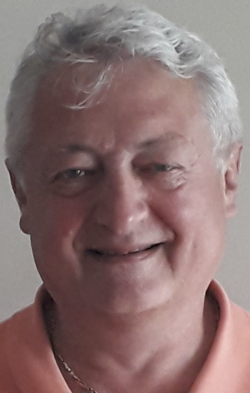
Université of Le Havre
Le Havre,France
Head Shot! Playing Politics in Computer Games
Abstract
What are the possibilities of political action utilizing computer gaming as the locus for engaging difficult issues surrounding violence, war and death? This presentation will discuss and analyze past works by the author in gaming interventionist practices as activist gestures. A lineage of works exploring war, death, protest and violence using video games, including ”dead-in-iraq”, ”The Salt Satyagraha Online: MGandhi's March to Dandi in Second Life”, ”Killbox” and ”Elegy: GTA USA Gun Homicides” among others. How do the works function to reimagine and recontextualise computer gaming for political action? What is the efficacy of such creative activist game based projects? The goal will be to describe, model and analyze approaches to activist practices in ludic contexts for creative change.
Curriculum Vitae
Joseph DeLappe is the Professor of Games and Tactical Media at Abertay University in Dundee, Scotland where he relocated early in 2017 after 23 years directing the Digital Media program at the University of Nevada, Reno. A native San Franciscan, he has been working with electronic and new media since 1983, his work in online gaming performance, sculpture and electromechanical installation have been shown throughout the United States and abroad - including exhibitions and performances in Australia, the United Kingdom, China, Germany, Spain, Belgium, the Netherlands, Mexico, Italy, Peru, Sweden and Canada. In 2006 he began the project dead-in-iraq , to type consecutively, all names of America's military casualties from the war in Iraq into the America's Army first person shooter online recruiting game. In 2013, he rode a specially equipped bicycle to draw a 460 mile long chalk line around the Nellis Air Force Range to surround an area that would be large enough to create a solar farm that could power the entire United States. More recently he developed the concept behind ”Killbox”;, an interactive computer game about drone warfare created with the Biome Collective in Scotland. Killbox was recently nominated for a BAFTA Scotland (British Academy of Film and Television Arts) as ”Best Computer Game”.
He has lectured throughout the world regarding his work, including the Museum of Modern Art in New York City. He has been interviewed on CNN, NPR, CBC, the Australian Broadcasting Corporation and on The Rachel Maddow Show on Air America Radio. His works have been featured in the New York Times, The Australian Morning Herald, Artweek, Art in America and in the 2010 book from Routledge entitled ˝Joystick Soldiers The Politics of Play in Military Video Games˝ among many others. He has authored two book chapters, including ˝The Gandhi Complex: The Mahatma in Second Life.˝ Net Works: Case Studies in Web Art and Design, (New York, Routledge 2011) and ˝Playing Politics: Machinima as Live Performance and Document˝, Understanding Machinima Essays on Filmmaking in Virtual Worlds, (London, UK, Continuum 2012).
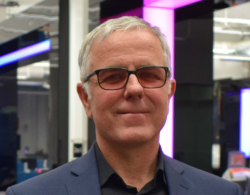
Professor of Games and Tactical Media Division of Games and Art
Abertay University
Dundee, Scotland, United Kingdom
Applied History. Developing meaningful connections between Past, Present and Future
Abstract
Throughout history, societies have developed meaningful connections between past, present and future. The French historian Francois Hartog refers to these connections as 'regimes of historicity '. In our presentation, we discuss these regimes and zoom in on the way in which current and recent generations have connected past, present and future. We will particularly zoom in on map the current regime of 'presentism', which is marked by our obsession with the present, by short-termism (as opposed to long-term thinking), by our focus on manifestations of the past in the present and by increasing (feelings of) uncertainty about the future.
Against this background, we discuss and contextualize the rise (and contestation) of future studies in the postwar years. Moreover, we outline the added benefit of historical versus social scientific approaches to current (and future) affairs, making the case for 'applied history '.
Curriculum Vitae
Harm Kaal (PhD VU University, 2008) is a political historian and assistant professor at the History Department of Radboud University. His key areas of interest are the language of politics and urban planning, the scientization of the political, the interaction between politics and popular culture, particularly politics and sport, and the history of electoral culture. From 2020 onwards, he will lead a research project on the position of 'ordinary citizens' in Dutch, British and German postwar political culture to be carried out by three PhD-students. The project is funded by a research grant of the Gerda Henkel Foundation. Together with Jelle van Lottum he is the founding editor-in-chief of the Journal of Applied History (Brill), brill.com/joah
Jelle van Lottum (PhD Utrecht University, 2007) is an economic historian and senior researcher and deputy head of the department of history at the Huygens Institute for the History of the Netherlands, an institute of the Royal Netherlands Academy of Arts and Sciences. His key research focus concerns the comparative history of labour migration and he has directed various projects on this topic, among others at the Universities of Cambridge, Oxford and Birmingham. With Harm Kaal he is the founding editor-in-chief of the Journal of Applied History (Brill), brill.com/joah
Virtual Reality as an Experiential Art Form
Abstract
How to tell a story to an audience when they are inside of it? One of the biggest questions when it comes to telling a story in virtual reality. Iris believes VR will bring us a new way of experiencing stories and therefore she is researching VR storytelling for the past couple of years. As a digital artist she approaches VR as a creative medium and uses it to build interactive stories to address social topics to the audience. In order to find VR's true potential we must understand that it is a medium on it's own and keep experimenting in building stories that are experiential. In VR we are not limited by any physical rules and therefore it gives artists full freedom in designing their stories. By doing so we might even find new ways of telling stories.
Curriculum Vitae
Iris van der Meule is a digital artist based in the Netherlands. She graduated her bachelor in animation with honors at art academy AKV St.Joost Breda. Currently she is following a master in animation at the Masters Institute of Visual Cultures at AKV St.Joost Den Bosch. During her bachelor she grew a fascination for virtual reality and educated herself in creating interactive VR experiences. As VR is a new storytelling medium, Iris is eager to research how we can use this medium creatively. With her fascination for socially relevant topics Iris creates poetic VR experiences that evoke emotion and raise awareness for the topics she addresses. Iris is a true VR pioneer when it comes to using VR as an art form and sees the potential of the medium forcreatives like her to bring storytelling and art to a new level.
